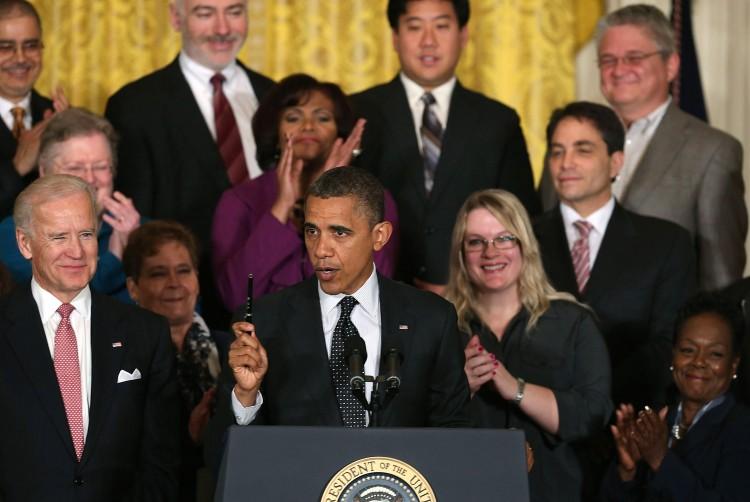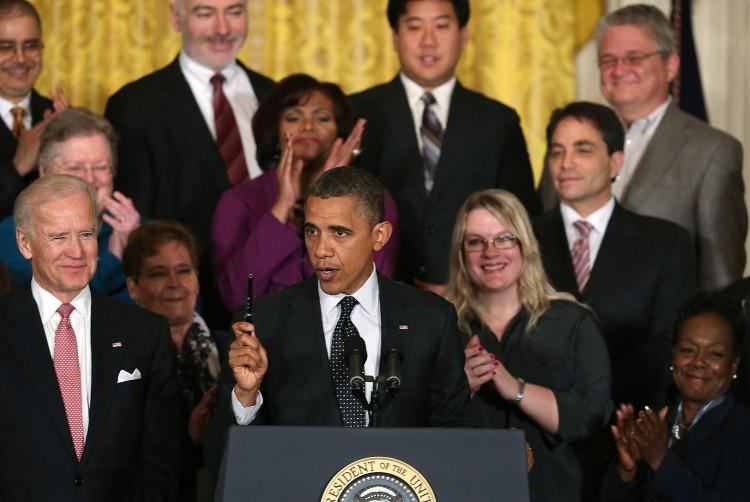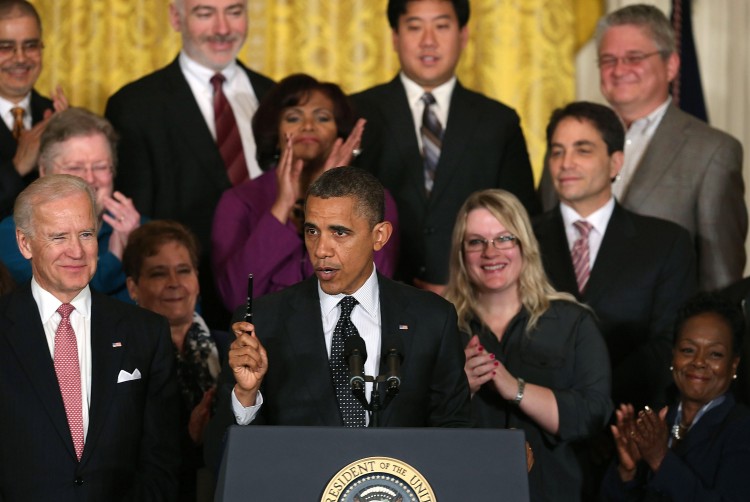‘Fiscal Cliff’ Concerns Intensify
The day of reckoning is approaching when Bush-era tax cuts expire and automatic government spending cuts kick in, but amid the panic over the fiscal cliff, there is a growing chorus cautioning against rushing into solutions.

U.S. President Barack Obama discusses ways of avoiding the so-called fiscal cliff on November 9, 2012, in Washington, DC. The effort to resolve concerns about the fiscal cliff continues, with meetings between the president, labor leaders, business and civilian leaders, and Congressional leaders happening this week. Mark Wilson/Getty Images
|Updated:





